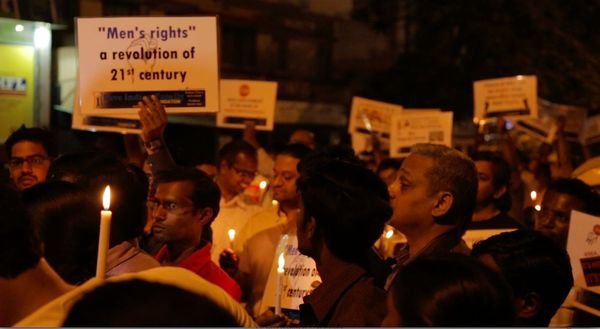Given the rising number of cases of misuse of the anti-dowry harassment law, the Centre has revealed plans to make the offence compoundable, reports India Today . What that, in essence, means is that both compromise and settlement between the two parties will be possible at the trial court stage, itself.
Presently, men who are charged under Section 498A of the IPC face undue harassment at the trial courts, following which they have to approach the High Court for any kind of relief.
The need to make anti-dowry harassment laws in the country more stringent was widely reported by the media last year. In a 21-page order , the Supreme Court noted that the law was increasingly being used as a ‘weapon’ by ‘disgruntled wives’, than as a way of safeguarding the interests of married women.
“The simplest way to harass is to get the husband and his relatives arrested under this provision,” the order observed.

Passed in 1983, section 498A of the IPC in its current form reads as – “Whoever, being the husband or the relative of the husband of a woman, subjects such woman to cruelty shall be punished with imprisonment for a term which may extend to three years and shall also be liable to fine. The offence is cognizable, non-compoundable and non-bailable.”
In most cases, arrests are made immediately, regardless of whether the allegations are true or fabricated.

Following which, unfairly accused men as well as their families, are left to desperately prove their innocence, while facing harassment by the police and trial courts.
“What I have gone through is legal extortion and defamation that the justice system in India permits. In addition, false charges of domestic violence have also been slapped on me and my family,” says a victimised husband who chose not to be named.

This is the government’s latest endeavour to curb the misuse of the law. Previously, the Supreme Court had instructed state governments to ensure that the police carries out a thorough investigation to verify the authenticity of complaints, according to a DNA report .
In addition, authorities are required to refer to a nine-point checklist , listed under Section 41 of the Criminal Procedure Code (CrPC), BEFORE they file a complaint.

The decision to make the offence compoundable was announced by Minister of State for Home Affairs, HP Chaudhary, in the Rajya Sabha on March 11, 2015. He said, “A draft note for the Cabinet which, inter alia, seeks to amend section 498A of the IPC, making it compoundable, has been sent to the legislative department, ministry of law and justice for drawing up the draft Bill.”
In light of these developments, two issues come to mind.
1. Dowry-related deaths in India have consistently been on the rise. More than 8600 were registered in India, in 2011 . Therefore, the country is in dire need of a screening process that quickly differentiates hoax cases from the very real and traumatising ones.
2. Is the law outdated? Rather than coming up with amendments, would a complete makeover of Section 498A be a more prudent move?

















